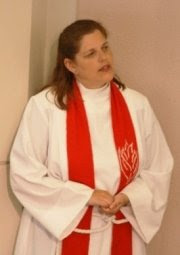We don't know anything about who Malachi was. Malachi means "my messenger" in Hebrew, so it could be a pen name taken by or assigned to a prophet.
However, the book tells us a lot about what the author thinks. He probably lived between 500 and 450 BC - after the return from captivity in Babylon. He respects the priesthood and holds the priests in high esteem. He talks a lot about the covenant.
The question and answer style of the book is different from other books of prophecy. However, his emphasis on sin, judgement and repentance is very similar to that of other prophets.
The central theme of the book is being true to the covenant and teachings of God and condemning those who have not been faithful to the covenant.
This ends the study of the minor prophets. We begin the major prophets next week.
Thursday, February 27, 2014
Thursday, February 20, 2014
Bible Challenge - Zechariah part two
Chapters 9 - 14 of the book of Zechariah were not written by Zechariah and were not written at close to the same time as the first part of the book.
The first part of the book of Zechariah was written around 530 BC by Zechariah who was a leader in the rebuilding of the temple of Jerusalem.
The second part of the book was written during the period between 400 and 300 BC when the Greek influence on Israel was at its height.
This part of the book focuses on the coming of the Messiah and the kingdom of God. The images of the Prince of Peace and the Good Shepherd that resonate through the New Testament for Jesus are picked up from the second part of the book of Zechariah and his prophecies of the Messiah
The first part of the book of Zechariah was written around 530 BC by Zechariah who was a leader in the rebuilding of the temple of Jerusalem.
The second part of the book was written during the period between 400 and 300 BC when the Greek influence on Israel was at its height.
This part of the book focuses on the coming of the Messiah and the kingdom of God. The images of the Prince of Peace and the Good Shepherd that resonate through the New Testament for Jesus are picked up from the second part of the book of Zechariah and his prophecies of the Messiah
Thursday, February 13, 2014
Bible Challenge - Zechariah part 1
The book of Zechariah is actually two different books written at two very different times and put together. We are looking at basically the first part this week.
Zechariah, along with Haggai, was a leader in the effort to rebuild the temple in Jerusalem after the Babylonian captivity. He casts a vision of a rebuilt temple and a reformed and revived community seeking the presence of God. His writing has a unique style for the minor prophets.
He relates night visions and conversations between God, the prophet, and the angel who interprets one to the other.
The vision of the flying scroll in chapter 5 is a particular example of this style of writing.
Zechariah, along with Haggai, was a leader in the effort to rebuild the temple in Jerusalem after the Babylonian captivity. He casts a vision of a rebuilt temple and a reformed and revived community seeking the presence of God. His writing has a unique style for the minor prophets.
He relates night visions and conversations between God, the prophet, and the angel who interprets one to the other.
The vision of the flying scroll in chapter 5 is a particular example of this style of writing.
Thursday, February 6, 2014
Bible Challenge - Zephaniah & Haggai
Zephaniah may have been a relative of King Hezekiah - he was certainly a part of the inner circle of both the court and the temple in Jerusalem from about 640 - 610 BC. Unlike most prophets he is not interested in the lack of care for the poor of the land. Instead he is focused on corrupt religious practices and violations of the religious laws that were laid down in the book of Deuteronomy.
The book of Zephaniah has three sections: The first proclaims doom on Judah - and warns them of the coming of the day of the Lord. The second proclaims God's judgement on other nations as well. The third promises that God will provide comfort to those who wait for him and are patient and serve God.
Haggai was one of the major leaders involved in the rebuilding of the temple in Jerusalem after the Babylonian captivity. In the spring of 515 BC the new temple was consecrated.
The book of Haggai is made up of five addresses from the years leading up to the rebuilding of the temple. They are encouraging the leaders to rebuild the temples and reform and purify the worship of God. It promises God's blessings on the people if they complete the work.
The book of Zephaniah has three sections: The first proclaims doom on Judah - and warns them of the coming of the day of the Lord. The second proclaims God's judgement on other nations as well. The third promises that God will provide comfort to those who wait for him and are patient and serve God.
Haggai was one of the major leaders involved in the rebuilding of the temple in Jerusalem after the Babylonian captivity. In the spring of 515 BC the new temple was consecrated.
The book of Haggai is made up of five addresses from the years leading up to the rebuilding of the temple. They are encouraging the leaders to rebuild the temples and reform and purify the worship of God. It promises God's blessings on the people if they complete the work.
Subscribe to:
Posts (Atom)
